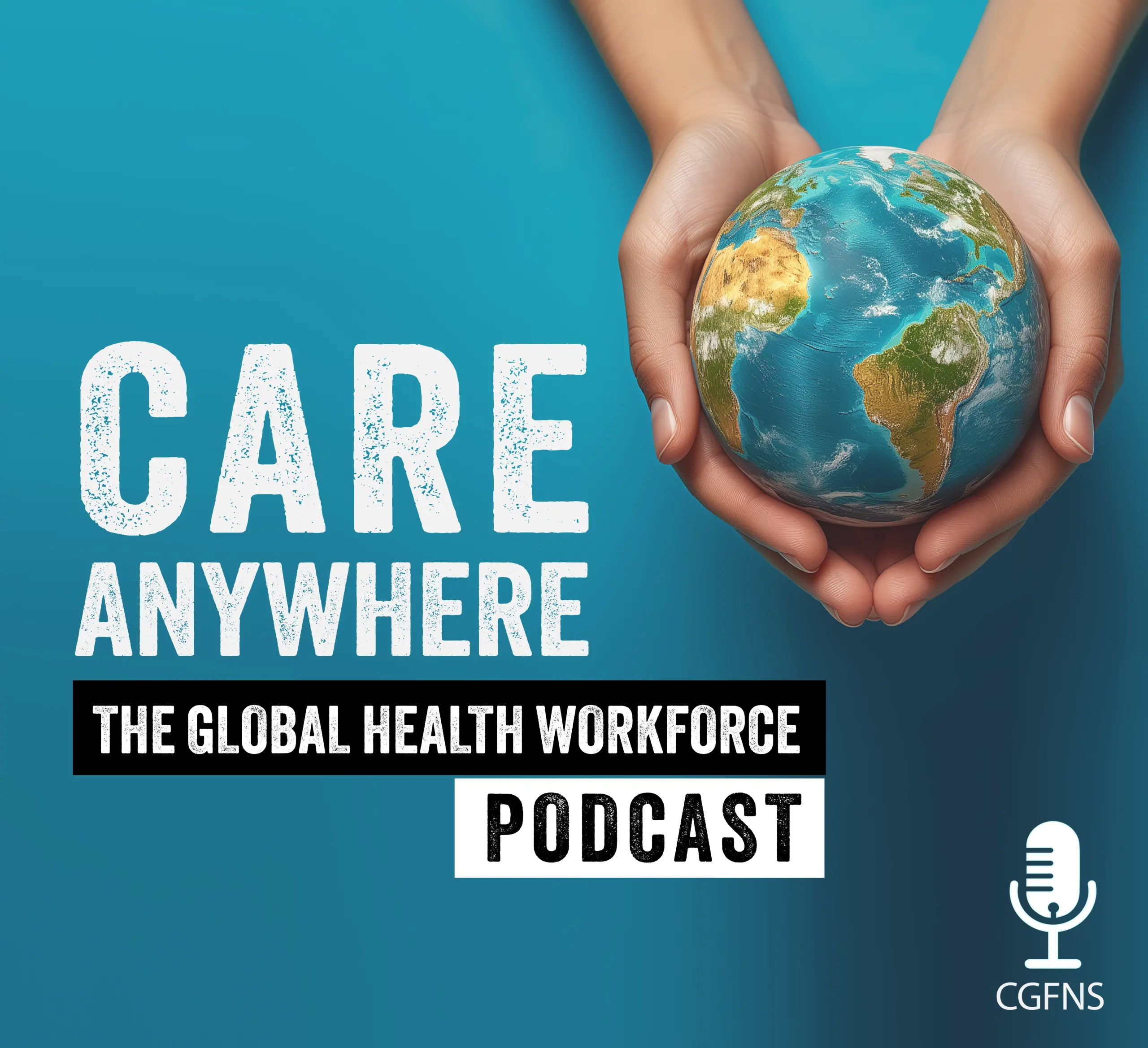Raising all Boats: Building Capacity for Global Health
In the latest episode of Care Anywhere, host Lea Sims, Chief Marketing & Communications Officer at CGFNS International, Inc., engages in a powerful discussion with Mary Sebert, Director of Global Nursing at Massachusetts General Hospital’s Center for Global Health. The episode dives deep into the challenges and opportunities facing the global health workforce, particularly focusing on how capacity building and education are essential in addressing workforce shortages and empowering health professionals to remain in their home countries while advancing their careers.
Lea kicks off the episode by explaining CGFNS’s mission to foster career mobility for health workers worldwide, noting that the podcast’s goal is to address what’s needed to equip the future global health workforce. Mary, who has had an extensive 39-year career in nursing, shares how her work with Mass General’s Center for Global Health has brought her around the world, empowering nurses through education programs, fellowships, and leadership development initiatives.
Mary’s journey is a unique one. At the age of 40, mid-career, she joined the Peace Corps, which sparked her passion for global health work. This experience of cultural humility shaped her approach to capacity building and her commitment to fostering education in underserved countries. As Director of Global Nursing, she spearheads programs that equip nurses with skills and knowledge that remain with them for a lifetime, transforming local health outcomes and strengthening entire communities.
The conversation covers key programs led by the Center for Global Health, including the Global Nursing Fellowship, Nursing Leadership Program, and the Nursing Scholarship Program. Mary shares how these initiatives are designed to provide advanced training and leadership skills to nurses in countries such as Uganda and Sierra Leone. The Center’s model is built around sustainability—training nurses who can, in turn, train others, creating a ripple effect that enhances healthcare systems.
One standout example Mary discusses is the Center’s Oncology Nursing Fellowship, which started in 2016. The fellowship provided training for Ugandan nurses in oncology care, and today, the program has evolved to the point where local nurses have become trainers, reducing reliance on external experts. This success story reflects the Center’s commitment to sustainability and long-term impact.
Throughout the episode, both Lea and Mary emphasize the importance of collaboration, relationships, and philanthropy in making these programs possible. Mary also reflects on the challenges of operating in resource-limited settings and the innovative solutions that have emerged from the Center’s work, such as neonatal care advancements in Uganda that dramatically reduced infant mortality.
The episode closes with Mary offering advice to new nurses, encouraging them to embrace learning opportunities and recognize that their nursing careers can take them in unexpected and exciting directions. Her message is clear: whether through local impact or global outreach, nurses have the power to transform lives and contribute to the global health landscape.
To learn more about the Mass General Center for Global Health and their work, visit their website or follow the link provided in the podcast episode notes.




